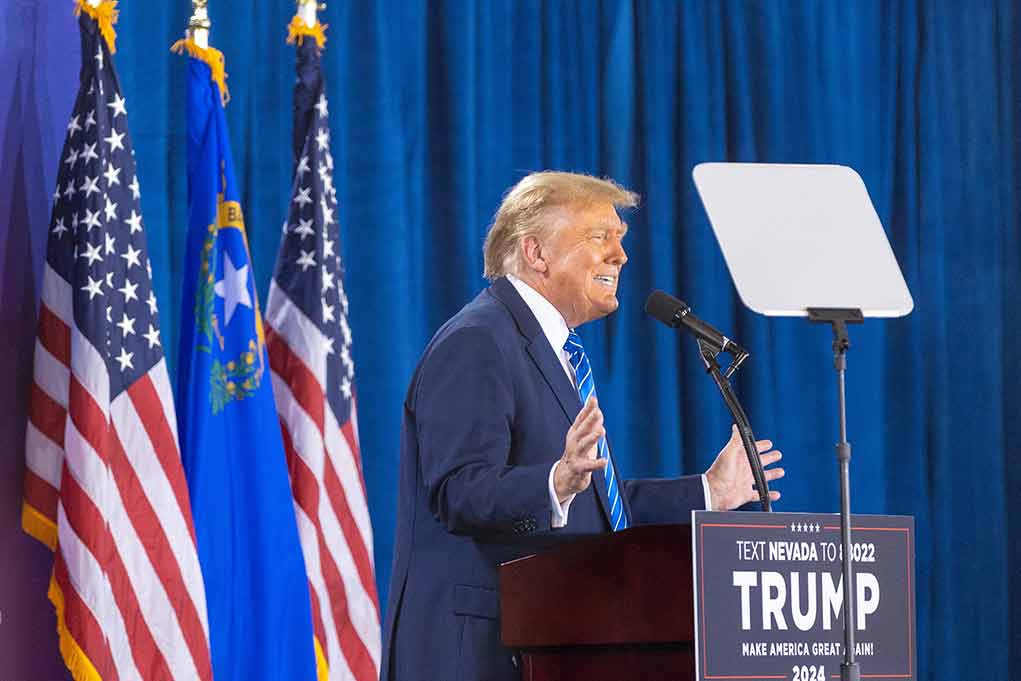
Elon Musk admits to sharp disagreements with President Trump on key economic policies while remaining committed to cutting $1 trillion through his Department of Government Efficiency initiative.
Key Takeaways
- Musk’s formal role as a special government employee has ended, but he will continue to be involved with the Trump White House and DOGE initiatives.
- Despite agreeing with Trump on approximately 80% of issues, Musk has expressed concerns about protectionist policies like tariffs and restrictions on foreign student visas.
- Musk publicly criticized the Republican-backed “One Big Beautiful Bill Act” for potentially increasing the deficit by $4 trillion over the next decade.
- DOGE claims to have identified $175 billion in government savings, though independent analysis found only $61.5 billion itemized.
- Musk faced significant backlash for his government cost-cutting role, including protests against his companies and declining Tesla sales.
Musk’s Mixed Relationship with the Trump Administration
In a revealing recent interview, Tesla and SpaceX CEO Elon Musk acknowledged his complicated relationship with President Trump’s administration, admitting he doesn’t always align with presidential decisions while still supporting much of the administration’s agenda. Though his formal role as a special government employee has concluded, Musk’s influence remains significant as he continues pushing for massive government spending cuts through the Department of Government Efficiency (DOGE), which he co-chairs with Vivek Ramaswamy.
Musk’s candor about disagreements with Trump represents a notable departure from the unified front typically presented by administration allies. “President Trump and I agree about 80% of the time, but he does do things that I don’t entirely agree with,” Musk stated, though he declined to specify these differences to avoid creating contentious headlines. His concerns reportedly center on protectionist policies like tariffs and limitations on foreign student visas that could hamper American competitiveness.
"I think a bill can be big or it could be beautiful. But I don't know if it could be both."
Tech billionaire Elon Musk tells CBS Sunday Morning's @Pogue he was "disappointed" to see the Trump-backed "big beautiful" spending bill, which passed in the House last week.
Musk said… pic.twitter.com/LUcuTaNYrs
— CBS Sunday Morning 🌞 (@CBSSunday) May 28, 2025
DOGE’s Achievements and Controversies
The Department of Government Efficiency, despite its official-sounding name, functions as an advisory body rather than a formal government department. DOGE has become Musk’s primary vehicle for influencing federal policy, with the tech billionaire claiming the initiative has already identified $175 billion in potential government savings. However, a BBC analysis found only $61.5 billion in itemized savings, raising questions about the accuracy of DOGE’s reported figures.
“Elon has been tirelessly helping lead the most sweeping and consequential government reform programme in generations,” said President Trump, praising Musk’s contributions during a formal send-off ceremony.
Musk’s work has generated significant controversy, with his companies facing global protests and sales declines directly linked to his involvement with the administration. Tesla in particular has experienced market challenges as some consumers reject the brand over Musk’s political alignments. Despite these headwinds, Musk remains committed to DOGE’s ambitious goal of identifying $1 trillion in spending cuts, which he views as essential to addressing America’s mounting national debt.
ELON CBS INTERVIEW
Watch the full CBS interview with Elon Musk, recorded on May 27, discussing DOGE, small government, and his relationship with the Trump administration. pic.twitter.com/eQj69FqSvj
— ELON CLIPS (@ElonClipsX) June 1, 2025
Public Clash Over the “One Big Beautiful Bill Act”
In his most public disagreement with the administration to date, Musk openly criticized the Republican-backed “One Big Beautiful Bill Act,” arguing it undermines DOGE’s mission by potentially adding $4 trillion to the deficit over the next decade. This rare public split prompted House Speaker Mike Johnson to quickly respond with assurances that future legislation would codify DOGE-recommended cuts to address Musk’s concerns about fiscal responsibility.
“It’s his baby,” Trump remarked about Musk’s relationship with DOGE, adding that Musk is “not really leaving” despite the conclusion of his formal government role.
During a recent news conference, Musk also took time to address misconceptions about DOGE’s work, emphasizing that the initiative has been unfairly blamed for various cuts and reassuring Americans that essential programs like Social Security would not be affected. The tech mogul deflected questions about his physical appearance, attributing a visible bruise to a playful incident with his son rather than the stress of government work.
The Path Forward
Despite officially concluding his role as a special government employee, Musk appears poised to maintain significant influence within the Trump administration. The billionaire entrepreneur continues advocating for streamlined government operations while navigating the complex reality of disagreeing with certain administration policies. His willingness to publicly voice concerns while remaining committed to the broader mission of fiscal restraint illustrates the nuanced relationship between the administration and one of its most prominent supporters.
As Musk transitions to a less formal but potentially equally influential role, the true impact of his government efficiency efforts remains to be seen. With ambitious goals to cut $1 trillion in government spending, DOGE’s work will likely continue affecting federal agencies and programs for years to come, regardless of Musk’s official title. Meanwhile, American taxpayers and political observers will be watching closely to see how Musk’s relationship with the administration evolves in response to policy differences.




